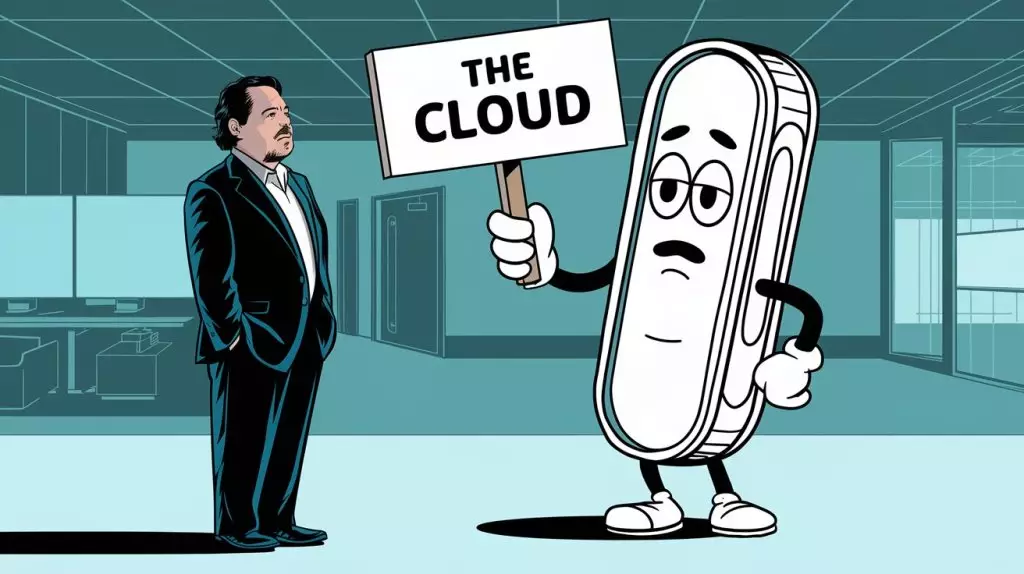In the fast-paced world of technology, particularly in artificial intelligence (AI), the competition between leading companies can often spill over into public discourse. Recently, Marc Benioff, co-founder and CEO of Salesforce, took to social media to critique Microsoft’s AI offering known as Copilot. In his terse evaluation, Benioff dismissed Copilot as “disappointing,” likening it to the infamous Clippy, Microsoft’s virtual assistant from the 1990s that was notorious for being more of a nuisance than a help. This appraisal not only reflects Benioff’s personal views but also encapsulates the broader tensions and rivalries in a sector that ostensibly thrives on innovation and collaboration.
Microsoft’s Copilot, powered by OpenAI’s sophisticated GPT models, was introduced to enhance productivity within Microsoft’s Office 365 suite. Its functionalities were later expanded to encompass a broader range of tools, aiming to deliver a more seamless user experience across various platforms. Despite the noble intentions behind its development, operational effectiveness has been called into question. Benioff’s biting remarks highlight concerns among users who may feel that Copilot fails to offer the accuracy and assistance it promises. The comparison to Clippy is particularly piquant; it conjures memories of an era when users were frequently interrupted and frustrated by intrusive and often irrelevant suggestions during their workflows.
Benioff’s criticisms are not made in a vacuum. Salesforce, known for its customer relationship management (CRM) software, stands in direct competition with Microsoft’s Dynamics 365. This rivalry inevitably colors his perspective on Microsoft’s technology. The stakes are high, with both companies aiming to harness AI’s capabilities to refine their offerings and attract users. However, Benioff’s comments bring to light a dual narrative—while he recognizes AI’s transformative potential in business, he simultaneously points to shortcomings in Microsoft’s execution. This illustrates an interesting dynamic where he seems to advocate for innovation yet takes a disruptive stance against a competitor’s failure.
Adding yet another layer of complexity to Benioff’s commentary is his somewhat contradictory stance on AI’s overall progress. While he has historically embraced the opportunities AI brings, his more recent observations suggest skepticism towards the broader claims about AI’s transformative power. In a prior statement, he expressed doubt over the purported capabilities of AI in solving grand challenges such as cancer and climate change. This skepticism contrasts sharply with his enthusiasm for Salesforce’s new AI agent-building tool, Agentforce, which he claims is the most exciting project of his career. Such contradictions prompt questions about whether he is positioning Salesforce as a superior alternative or simply engaging in competitive rhetoric.
Benioff’s sharp critiques have not gone unnoticed, with industry observers and experts taking note of his stance on AI’s potential and limitations. Ed Zitron, a public relations expert, has interpreted these remarks as part of a broader narrative that suggests a backlash against the uncritical enthusiasm surrounding generative AI. Such statements may serve as cautionary tales for customers who seek to navigate the rapidly evolving AI landscape. In an environment where promises often outstrip reality, discerning which technologies deliver real value becomes paramount. The challenge for Benioff and Salesforce lies in ensuring that their offerings stand up to scrutiny, amid a tempest of skepticism that he himself has stirred with his critiques.
As the tech landscape continues to evolve, the fierce competition between giants like Salesforce and Microsoft brings critical scrutiny of AI offerings to the forefront. Marc Benioff’s comments serve both as a critique of a competitor and as a reflection of the growing hesitation surrounding the AI narrative. For consumers and businesses alike, this rivalry underscores the necessity for transparency and authenticity in AI development. Ultimately, the focus must shift towards understanding the value and actual capabilities of these technologies rather than succumbing to inflated promises. The AI revolution demands a balanced perspective, one that fosters genuine advancement over speculative hype.

